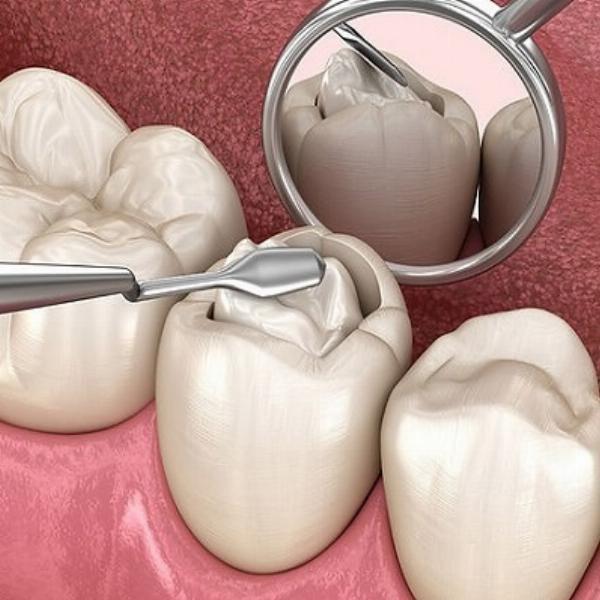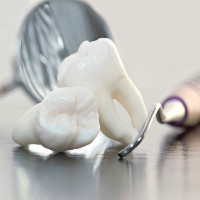Are Dental Fillings Safe? Addressing Common Concerns

Strong 8k brings an ultra-HD IPTV experience to your living room and your pocket.
When it comes to Dental Tooth Filling In Dubai, many patients have questions regarding their safety and the materials used. Dental fillings are a common procedure for treating cavities and restoring the function of teeth. However, concerns about materials, potential health risks, and long-term effects often arise. In this comprehensive guide, we will address common concerns surrounding dental fillings to help you make informed decisions about your oral health.
Understanding Dental Fillings:
Dental fillings are materials used to fill cavities caused by tooth decay or damage. They restore the tooth’s shape, function, and appearance, allowing you to eat and speak comfortably. Common materials used for fillings include amalgam, composite resin, glass ionomer, and resin ionomer. Each material has its unique benefits and drawbacks.
Importance of Dental Fillings:
Fillings are essential for maintaining oral health. Untreated cavities can lead to more severe dental issues, such as toothaches, infections, or even tooth loss. By addressing decay early with fillings, you can prevent these complications, ensuring your teeth remain functional and healthy.
Are Fillings Safe?
Safety of Filling Materials:
One of the primary concerns surrounding dental fillings is the safety of the materials used. Here’s a look at some commonly used filling materials and their safety profiles:
Amalgam Fillings: Amalgam, composed of mercury, silver, tin, and copper, has been used for over a century. Many dental associations, including the American Dental Association (ADA), deem amalgam fillings safe for most patients. The mercury in amalgam is bound within the material and poses minimal risk when used correctly.
Composite Resin Fillings: These fillings are made from a mixture of plastic and fine glass particles. They are considered safe and are widely used for their aesthetic appeal. Composite materials are less toxic than some other filling types and do not contain mercury.
Glass Ionomer Fillings: This type of filling releases fluoride, which can help protect teeth from further decay. Glass ionomer is safe and biocompatible, making it a suitable option for many patients, especially children.
Resin Ionomer Fillings: Similar to glass ionomer, resin ionomer fillings are safe and can be matched to tooth color, offering aesthetic benefits while protecting against decay.
Risks and Allergic Reactions:
While dental fillings are generally safe, some individuals may experience allergic reactions to specific materials. It is crucial to inform your dentist about any known allergies before the procedure. If you have concerns about a particular material, discuss alternatives with your dentist, who can help find a suitable option for your needs.
The Procedure: What to Expect:
Pre-Treatment Consultation:
Before receiving a dental filling, your dentist will conduct a thorough examination, often using X-rays to assess the extent of decay. During this consultation, you can discuss any concerns regarding safety and the materials used for your dental tooth filling in Dubai.
The Filling Process:
The process of getting a filling is typically straightforward and performed in one visit. Here’s what to expect:
Anesthesia: Local anesthesia is usually administered to numb the affected area, ensuring you remain comfortable during the procedure.
Decay Removal: The dentist will use a drill or laser to remove the decayed portion of the tooth.
Filling Placement: Once the cavity is cleaned, the chosen filling material is placed and shaped to fit the tooth. For composite fillings, a special light may be used to harden the material.
Polishing and Final Touches: The filling is polished to ensure a smooth finish, and your bite is checked to ensure comfort.
Post-Treatment Care:
After getting a filling, you may experience some sensitivity to hot or cold temperatures. This is normal and typically subsides within a few days. Your dentist will provide post-treatment care instructions, which may include:
Avoiding hard or sticky foods for the first 24 hours.
Practicing good oral hygiene to maintain the filling and surrounding teeth.
Long-Term Considerations for Dental Fillings:
Lifespan of Fillings:
The longevity of dental fillings can vary based on the material used and your oral hygiene practices. Generally, amalgam fillings can last 10 to 15 years, while composite fillings typically last 5 to 10 years. Regular dental check-ups can help monitor the condition of your fillings and address any concerns early on.
Monitoring and Maintenance:
To ensure the continued safety and effectiveness of your fillings, regular dental visits are essential. During these check-ups, your dentist will assess the condition of your fillings and can replace or repair them as necessary. Practicing good oral hygiene at home, including brushing twice a day and flossing daily, will help extend the life of your fillings.
Conclusion:
In conclusion, dental tooth filling in Dubai is a safe and effective way to address cavities and restore tooth function. While concerns regarding the materials used and potential risks are valid, the benefits of timely treatment far outweigh the risks. Consulting with your dentist and discussing any apprehensions can help ensure that you receive the best care tailored to your needs.
Note: IndiBlogHub features both user-submitted and editorial content. We do not verify third-party contributions. Read our Disclaimer and Privacy Policyfor details.







